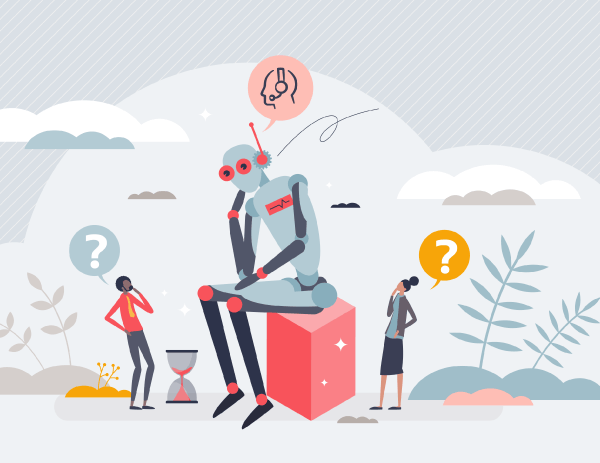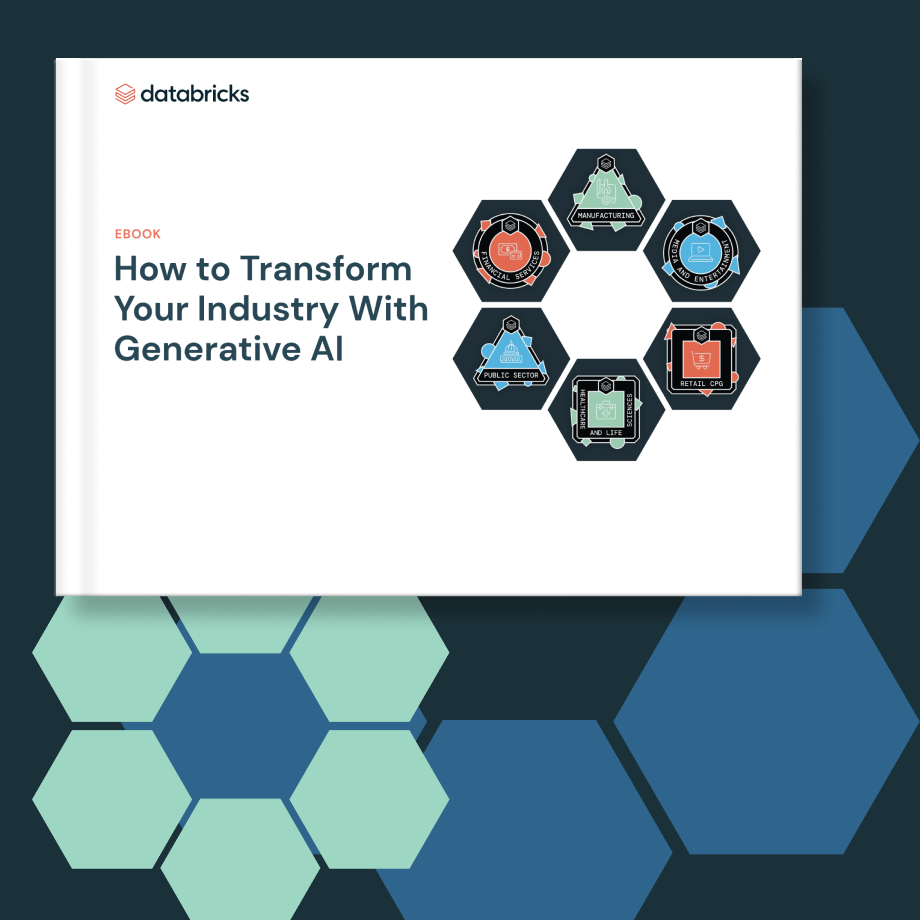Artificial Intelligence (AI) is transforming our world. Its potential is vast and diverse.
AI touches almost every industry today. From healthcare to finance, AI's impact is undeniable. It automates tasks, making processes faster and more efficient. AI can analyze large data sets, revealing insights humans might miss. This technology is not just for tech giants; even small businesses benefit.
AI-powered tools are becoming more accessible. As AI continues to evolve, its possibilities grow. But what exactly can AI do? Let's explore the many ways AI is shaping our future and the exciting opportunities it presents. Whether you're a business owner, student, or tech enthusiast, understanding AI's potential is essential in today's world.

Credit: www.contactcenterpipeline.com
AI In Healthcare
Artificial Intelligence (AI) is transforming many industries. Healthcare is no exception. AI helps improve efficiency and accuracy in medical processes. It supports doctors and enhances patient care. Let's explore how AI impacts healthcare.
Medical Diagnosis
AI assists in medical diagnosis with remarkable precision. It analyzes vast amounts of data quickly. This helps doctors identify diseases early. AI tools can read X-rays, MRIs, and CT scans. They spot irregularities that humans might miss.
For instance, AI algorithms detect cancer in its early stages. This early detection can save lives. AI also helps in diagnosing heart diseases. It analyzes ECG reports and other vital signs accurately.
| Condition | AI Role |
|---|---|
| Cancer | Early detection through image analysis |
| Heart Diseases | Accurate analysis of ECG reports |
Personalized Treatment
AI offers personalized treatment plans for patients. It considers individual medical history and lifestyle. This leads to better health outcomes. AI analyzes patient data to suggest specific treatments. It can tailor medication doses based on a patient's unique needs.
For example, AI can create custom rehabilitation plans for stroke patients. It monitors their progress and adjusts the plan accordingly. AI also helps in managing chronic diseases like diabetes. It tracks blood sugar levels and offers diet recommendations.
- Custom rehabilitation plans for stroke patients
- Managing chronic diseases like diabetes
- Tailored medication doses
AI in healthcare is making a significant difference. It enhances diagnostic accuracy and offers personalized treatments. This results in better patient outcomes and improved healthcare services.

Credit: www.youtube.com
AI In Finance
Artificial Intelligence (AI) is transforming the finance sector. It provides tools that improve efficiency and accuracy. AI helps manage data, predict trends, and make informed decisions. This section will explore two major uses of AI in finance: Fraud Detection and Algorithmic Trading.
Fraud Detection
Fraud detection is critical in finance. AI helps identify suspicious activities quickly. It scans vast amounts of data for unusual patterns. This process is faster and more accurate than manual checks.
AI uses machine learning algorithms. These algorithms learn from past data. They identify signs of fraud based on historical records. For example:
- Unusual transaction amounts
- Frequent transactions in a short time
- Transactions from unknown locations
AI systems alert banks when they detect such patterns. This helps prevent financial losses and protects customers.
Algorithmic Trading
Algorithmic trading uses AI to make trading decisions. It involves buying and selling stocks based on algorithms. These algorithms analyze market data. They make quick decisions to maximize profits.
AI evaluates various factors:
- Market trends
- Historical data
- Current news
Based on this analysis, AI predicts stock movements. It then performs trades automatically. This process is faster than human trading. It reduces the risk of human error. AI can also run multiple strategies at once, increasing the chances of success.
Here’s a simple table summarizing the benefits of AI in finance:
| Aspect | Benefits |
|---|---|
| Fraud Detection | Quick identification of fraud, reduced financial loss |
| Algorithmic Trading | Efficient trading, reduced human error |
AI continues to evolve in the finance sector. It makes processes more efficient and secure.
AI In Education
Artificial Intelligence (AI) is transforming education in many ways. From personalized learning experiences to administrative tasks, AI is making education more efficient and engaging. Let's explore how AI is reshaping the educational landscape.
Personalized Learning
Personalized learning is one of the most exciting applications of AI in education. AI systems can analyze a student's strengths and weaknesses. They can then create customized learning plans that suit each student's needs. This approach ensures that every student can learn at their own pace.
AI can also provide instant feedback. This helps students understand their mistakes and learn from them quickly. Adaptive learning platforms use AI to adjust the difficulty of tasks based on a student's performance. This makes learning more engaging and effective.
Here are some benefits of personalized learning:
- Customized learning paths
- Immediate feedback
- Engaging learning experiences
Administrative Automation
AI can automate many administrative tasks in education. This allows teachers and administrators to focus more on teaching and less on paperwork. AI can handle tasks such as grading, scheduling, and even student enrollment.
AI-powered chatbots can assist students with common queries. This reduces the workload on administrative staff. Additionally, AI can help in monitoring student attendance and performance, providing valuable insights for educators.
Here are some administrative tasks that AI can automate:
- Grading assignments
- Scheduling classes
- Student enrollment
- Answering student queries
- Monitoring attendance
In summary, AI is making education more efficient and personalized. It helps create a better learning experience for students and reduces the administrative burden on educators.
Artificial Intelligence is changing the way we travel. It makes transportation smarter and safer. From self-driving cars to better traffic management, AI is the future of transportation.
Autonomous Vehicles
Autonomous vehicles use AI to drive without human help. These cars have sensors and cameras that collect data. AI processes this data to make driving decisions. This can reduce human errors and accidents. Many companies are testing self-driving cars. They aim to make roads safer and transportation more efficient.
Traffic Management
AI can improve traffic management. It helps control traffic lights and reduce congestion. AI systems analyze traffic patterns in real-time. They can adjust traffic signals to keep cars moving smoothly. This reduces wait times and fuel consumption. Cities use AI to manage traffic better and make commuting easier for everyone.
AI In Entertainment
AI is transforming the entertainment industry. From personalized content to immersive experiences, AI is making entertainment more engaging. It is shaping the way we consume and interact with media. Let’s explore the exciting possibilities AI brings to entertainment.
Content Recommendation
AI can predict what you like to watch or listen to. It analyzes your preferences and suggests content accordingly. This means you spend less time searching and more time enjoying. Streaming services use AI to recommend movies, shows, and music. This personalized experience keeps users engaged and satisfied.
Virtual Reality
AI enhances virtual reality (VR) experiences. It creates realistic environments and interactions. AI can adjust the VR world based on user behavior. This makes the experience more immersive and enjoyable. Game developers use AI to create smart characters and dynamic worlds. This brings a new level of realism to VR games.

Credit: www.databricks.com
Ethical Considerations
Artificial Intelligence (AI) holds immense potential to transform our world. Yet, with great power comes great responsibility. Ethical considerations in AI are crucial to ensure its fair and safe use. Here, we explore two key ethical concerns: bias and fairness, and privacy concerns.
Bias And Fairness
AI systems can learn biases from their training data. These biases can lead to unfair outcomes. For example, an AI hiring tool might favor certain demographics. This happens if the training data reflects historical biases. Ensuring fairness requires careful data selection and ongoing monitoring. Diverse teams should work on AI projects to spot potential biases. Fair AI benefits everyone by promoting equality and justice.
Privacy Concerns
AI often requires large amounts of data. This data can include sensitive information. Protecting this data is vital to maintain privacy. Misuse of personal data can lead to serious issues. For instance, unauthorized access can result in identity theft. Clear policies and strong security measures are necessary. Users should know how their data is used and stored. Transparency builds trust and ensures compliance with regulations.
Future Prospects
Artificial Intelligence (AI) holds immense potential for the future. Its impact is growing in many fields. From healthcare to transportation, AI's influence is vast. Let's explore what's possible with AI in the future.
Emerging Technologies
AI is driving the growth of new technologies. These technologies are transforming industries:
- Self-driving cars: AI makes them safer and more efficient.
- Smart homes: AI helps automate and control devices.
- Healthcare: AI assists in early diagnosis and treatment plans.
- Robotics: AI-powered robots are improving manufacturing and service sectors.
These are just a few examples. AI will continue to push the boundaries of what's possible.
Potential Challenges
AI also brings some challenges. Addressing them is crucial for a balanced future:
- Ethical concerns: AI must respect human rights and privacy.
- Job displacement: AI may replace some jobs, needing new skills training.
- Bias in AI: AI systems can reflect existing biases, causing unfair results.
- Security risks: AI can be exploited by cybercriminals.
Understanding these challenges can help create better AI systems. It's essential to work towards solutions that benefit everyone.
Frequently Asked Questions
What Can AI Do In Healthcare?
AI can analyze medical data, diagnose diseases, and assist in treatment plans. It helps in predicting patient outcomes and personalizing care.
How Is AI Used In Education?
AI personalizes learning experiences, automates grading, and offers intelligent tutoring systems. It helps in identifying students' strengths and weaknesses.
Can AI Improve Business Operations?
AI optimizes supply chain management, enhances customer service, and automates repetitive tasks. It helps in data analysis and decision-making.
How Does AI Benefit Transportation?
AI improves traffic management, enhances vehicle safety, and enables autonomous driving. It optimizes routes and reduces fuel consumption.
Conclusion
AI offers endless possibilities for growth and innovation. It can improve daily tasks and enhance various industries. From healthcare to education, AI makes processes easier and faster. The future holds even more potential with ongoing advancements. Embracing AI technology can lead to significant improvements.
Stay curious and open to new AI developments. This journey with AI has just begun. Ready to explore what's next?

Comments
Post a Comment